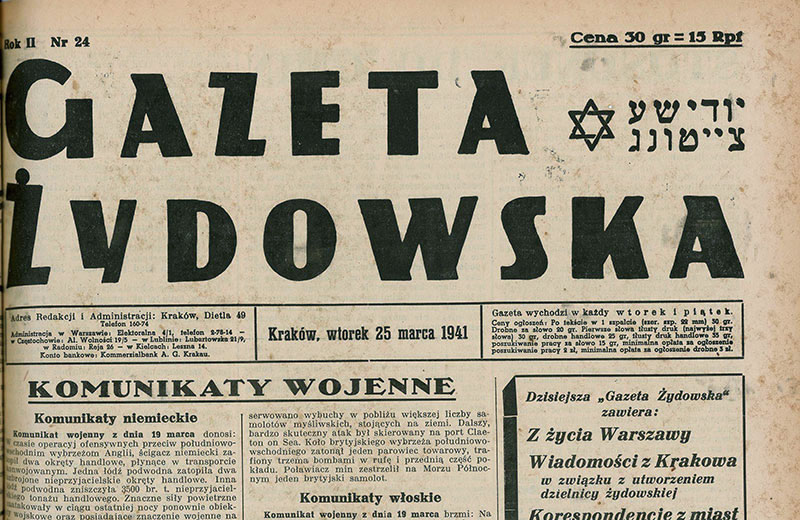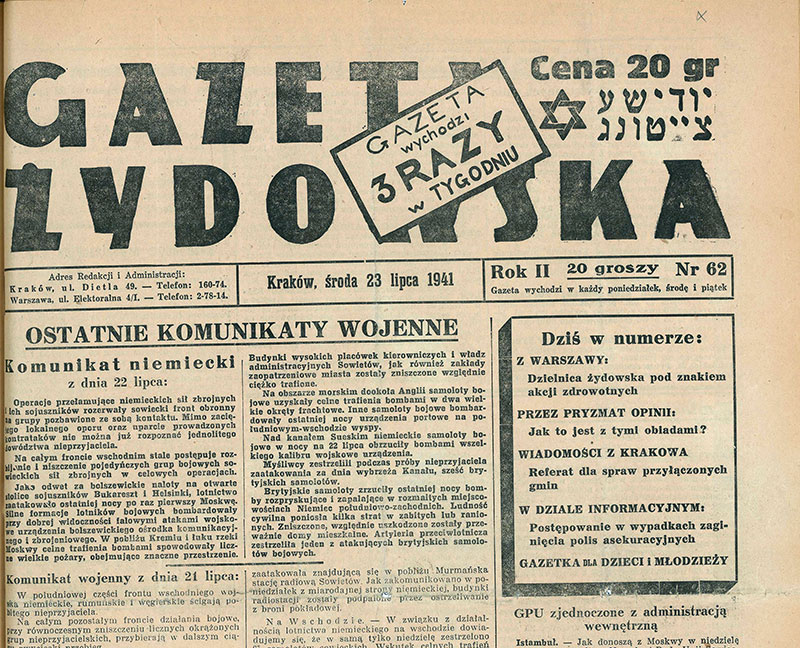Wolbrom During the Holocaust
Wolbrom was occupied by the German army on 5 September, less than four days after the outbreak of World War II. At the beginning of the war, a number of Jews from Wolbrom were recruited into the Polish army, and some of them were killed in battle. In October 1939, Wolbrom was incorporated into the area known as the General Government. A little while later, a Judenrat was established in the town, headed by Yehiel Engelrad.
In mid-1940, the Germans began to move Jewish refugees into Wolbrom. Some 3,000 Jews from Krakow arrived in the town, adding to the thousands of Jews already living there in overcrowded and dire conditions. The Judenrat organized the distribution of food at a symbolic price in order to provide all the starving people with bread. In addition, the Judenrat directed a “sanitation department”, supervised by two doctors and a pharmacist.
At the conclusion of Passover 1942, the Jews were ordered to move to the fenced-off ghetto quarter. As a result, the sanitary conditions and desperate hunger worsened, leading to a great many deaths as a result of disease. In addition, more and more Jews were sent to concentration and forced labor camps.
In August 1942, the SS demanded 20 kg of gold from the Judenrat, promising that this “payment” would save the Jews of Wolbrom from deportation. However, despite the promises and the fact that the amount was paid in full, a large aktion took place in Wolbrom on 5 September 1942, after the Sabbath ended and an hour before the first slichot (penitential prayers) were due to be said. Most of the Jews were deported to the Belzec death camp where they were murdered in the gas chambers. Those who were deemed “fit for work” were sent to Plaszow or other forced labor camps.
After the September aktion, only a few hundred Jews remained in Wolbrom, most of them family members of the Judenrat and the Jewish police. They were put to work sorting the valuables and property left behind, living together close to the Study Hall surrounding the hospital. At the beginning of November, the second, and final, aktion took place. The few Jews left in Wolbrom were taken to a nearby forest and executed by gunfire.



